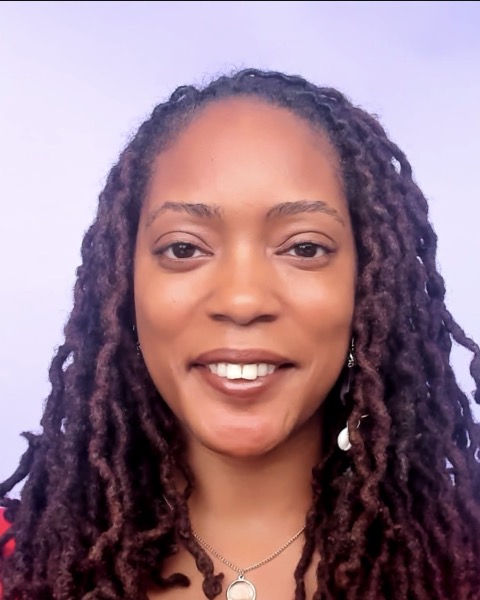Back
African Americans and the African Diaspora
Higher Education
Facilitators of Academic Persistence Among Black Women Graduates of Social Science Doctoral Programs
Friday, November 11, 2022
1:15 PM – 1:45 PM
Location: San Simeon B

Sandra R. Kalu, PhD, LMSW
Assistant Professor
Howard University
Washington, District of Columbia, United States
Lindsay Griffin, LCSW
Ph.D. Student
Bryn Mawr College
Newark, Delaware, United States
Author and Presenter(s)
Co-Author and Presenter(s)
Overview: Black women are underrepresented in doctoral education and experience gendered racism during the academic experience, especially when enrolled at predominately white institutions (PWIs). Previous studies highlight barriers to success. The purpose of this research study is to obtain collective perspectives on facilitators of success among Black women at (PWIs).Proposal text:
Background: The civil rights and women’s movements of the late 1960s and early 1970s led to the passing of legislation that created a pathway toward the abolishment of racial and gender discrimination in education. As a result, there have been increases in the educational attainment rates of Black women across all levels of education, including graduate and professional level education. This growth is particularly significant as higher education attainment often leads to higher wages. Since more than 80% of Black mothers are their families’ breadwinners, attaining higher education and inadvertently higher wages may positively impact their families’ health and wellbeing outcomes. However, although enrollment has increased, Black women are still underrepresented in most educational programs, including doctoral programs, especially at predominately white institutions (PWIs). Black women make up 14% of the population; however, they make up less than 10% of students who completed doctoral programs in the 2017-2018 academic year (NCES, 2019). Enrollment data clearly delineates the underrepresentation of Black women in doctoral programs. Furthermore, the literature continues to overemphasize factors that put Black women at risk of incompletion, rather than evaluating facilitators of success (Patterson-Stephens et al., 2017). In order to address the gaps in knowledge, researchers should include studies that identify factors that promote retention and success of Black women in doctoral programs. Further, research that focuses on Black women’s experiences in doctoral programs is primarily disciplinary-specific (i.e. STEM) and may not reflect students’ experiences in social science programs.
Purpose: This study’s guiding perspectives include Black Feminist Thought and Critical Race Theory, specifically counter storytelling, to examine the social and academic experiences of Black women enrolled in social science doctoral programs at PWIs in the United States. Specifically, this study aims to acknowledge how the participants give meaning to their doctoral education experiences, particularly regarding their persistence in their programs.
Methods: In-depth interviews were conducted with Black women (N = 6) between the ages of 27 and 56 who graduated from social science doctoral programs at PWIs between 2017 and 2020. A thematic analysis approach was used to analyze the interview data to identify facilitators of participants’ persistence.
Results: Qualitative efforts identified five themes that influenced academic persistence among Black women who received their social science doctoral degrees from PWIs. Participants acknowledged that intrinsic (motivation, self-efficacy, and belongingness) and extrinsic factors (social support and responsive learning environments) influence persistence.
Conclusion and Implications: Black women have a civil right to equitable educational opportunities. Given the correlation between educational attainment and financial outcomes and their role in providing for their families, the path to higher education is critical among Black women. Findings offer insight into the individual and structural factors that facilitate Black women’s success in social science doctoral programs at PWIs. Results also provide higher education practitioners direction to develop supportive programming that positively impacts Black women’s academic persistence. Finally, this knowledge contributes to Black feminist epistemology and social science education research and practices, as it presents novel data on the academic experiences and success of Black women.
Background: The civil rights and women’s movements of the late 1960s and early 1970s led to the passing of legislation that created a pathway toward the abolishment of racial and gender discrimination in education. As a result, there have been increases in the educational attainment rates of Black women across all levels of education, including graduate and professional level education. This growth is particularly significant as higher education attainment often leads to higher wages. Since more than 80% of Black mothers are their families’ breadwinners, attaining higher education and inadvertently higher wages may positively impact their families’ health and wellbeing outcomes. However, although enrollment has increased, Black women are still underrepresented in most educational programs, including doctoral programs, especially at predominately white institutions (PWIs). Black women make up 14% of the population; however, they make up less than 10% of students who completed doctoral programs in the 2017-2018 academic year (NCES, 2019). Enrollment data clearly delineates the underrepresentation of Black women in doctoral programs. Furthermore, the literature continues to overemphasize factors that put Black women at risk of incompletion, rather than evaluating facilitators of success (Patterson-Stephens et al., 2017). In order to address the gaps in knowledge, researchers should include studies that identify factors that promote retention and success of Black women in doctoral programs. Further, research that focuses on Black women’s experiences in doctoral programs is primarily disciplinary-specific (i.e. STEM) and may not reflect students’ experiences in social science programs.
Purpose: This study’s guiding perspectives include Black Feminist Thought and Critical Race Theory, specifically counter storytelling, to examine the social and academic experiences of Black women enrolled in social science doctoral programs at PWIs in the United States. Specifically, this study aims to acknowledge how the participants give meaning to their doctoral education experiences, particularly regarding their persistence in their programs.
Methods: In-depth interviews were conducted with Black women (N = 6) between the ages of 27 and 56 who graduated from social science doctoral programs at PWIs between 2017 and 2020. A thematic analysis approach was used to analyze the interview data to identify facilitators of participants’ persistence.
Results: Qualitative efforts identified five themes that influenced academic persistence among Black women who received their social science doctoral degrees from PWIs. Participants acknowledged that intrinsic (motivation, self-efficacy, and belongingness) and extrinsic factors (social support and responsive learning environments) influence persistence.
Conclusion and Implications: Black women have a civil right to equitable educational opportunities. Given the correlation between educational attainment and financial outcomes and their role in providing for their families, the path to higher education is critical among Black women. Findings offer insight into the individual and structural factors that facilitate Black women’s success in social science doctoral programs at PWIs. Results also provide higher education practitioners direction to develop supportive programming that positively impacts Black women’s academic persistence. Finally, this knowledge contributes to Black feminist epistemology and social science education research and practices, as it presents novel data on the academic experiences and success of Black women.
Learning Objectives:
- Upon completion, the participant will be able to discuss protective factors that facilitate academic success among Black women enrolled in social science doctoral programs.
- Upon completion, the participant will recognize the importance of engaging the intersecting identities of their students and provide responsive support to ensure that Black women pursuing social science doctoral degrees complete their programs.
